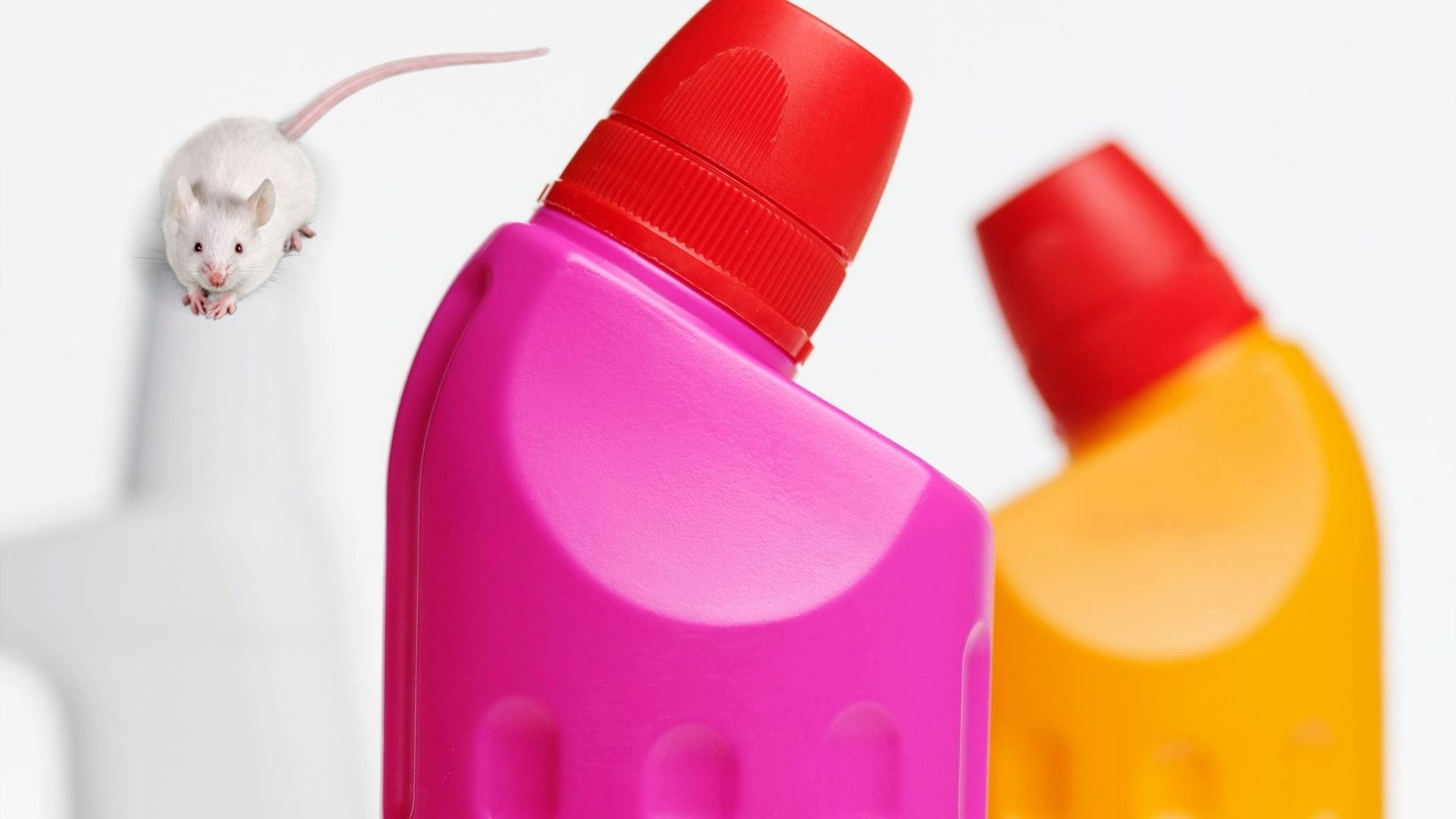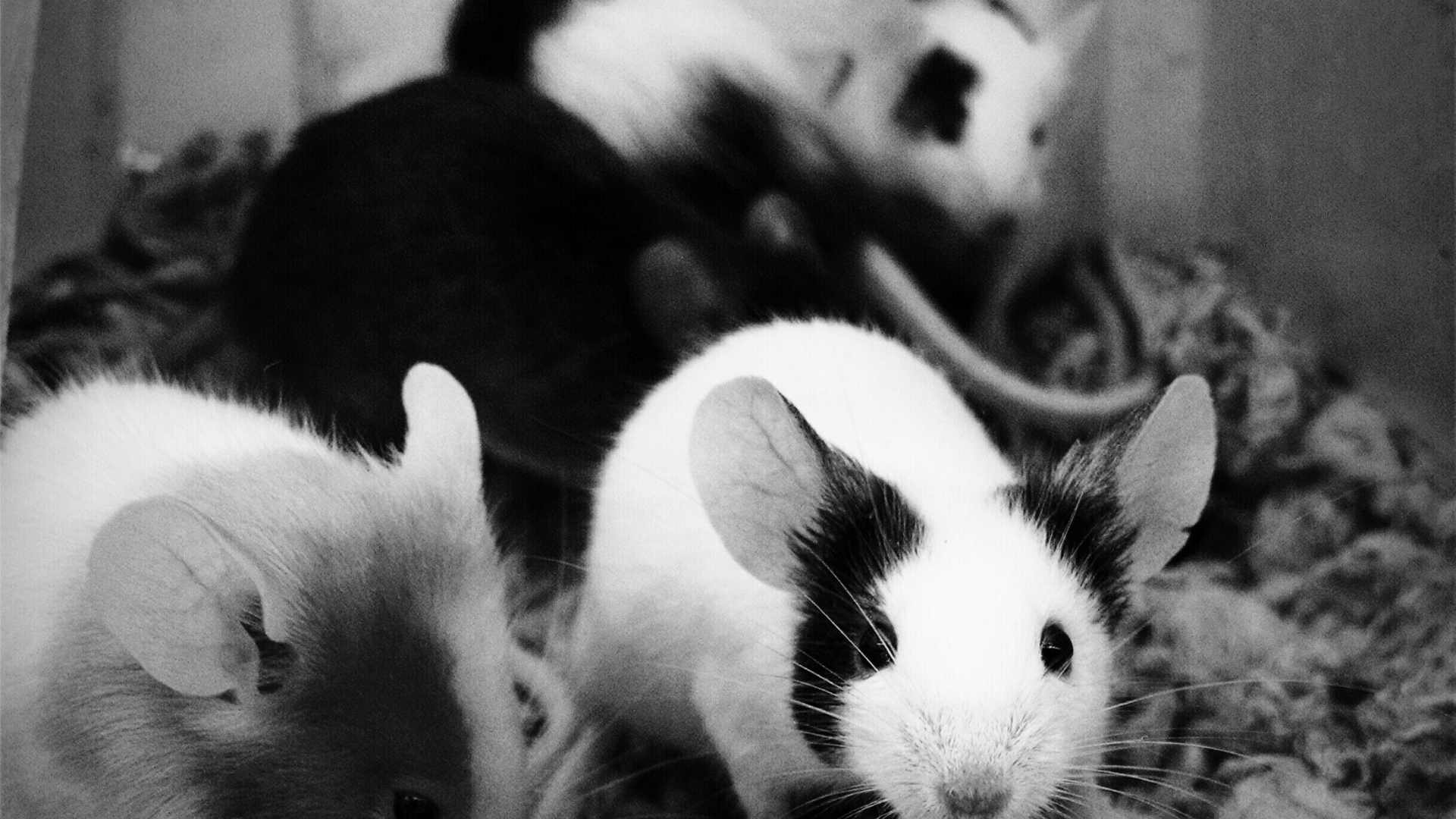Mice are a nuisance in any household. They wreak havoc by chewing on clothing, wires, and furniture, not to mention the likelihood of spreading diseases. Studies show that mice carry nearly 27 diseases, including leptospirosis, hantavirus, tularemia, and lymphocytic choriomeningitis.
While we have some excellent mouse control techniques on this site, there are also some tools you can use to repel mice from entering your home.
In this post, we will answer the question; does bleach repel mice?
The use of poison or rodenticide is also efficient at eliminating mice, but it can pose a danger to your pets and children. As a result, homeowners opt for more natural methods to keep away rodents. One of them is the use of bleach.
Bleach has a strong, unpleasant smell that stings the eyes, but does bleach repel mice? Does bleach keep mice away? Let’s take a look…
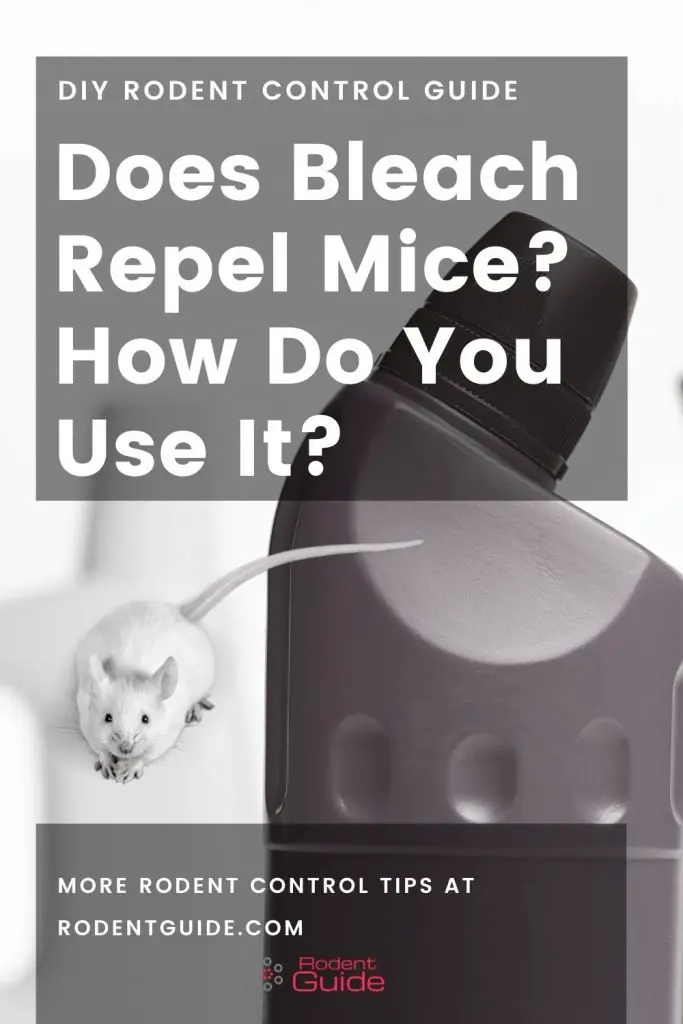
How does bleach repel mice?
Mice have poor eyesight but a strong sense of smell. They use scent markers, also known as pheromones, to detect potential danger and communicate with each other. It explains why mouse traps are baited with cheese, peanut butter, and other foods that release a pleasant smell.
The unpleasant smell of bleach is undesirable to rodents making it an excellent repellant. So how does bleach repel mice?
5 Ways to Use Bleach to Keep Mice Away
Can bleach repel mice? Yes, it can. How can you use it? Let’s take a look.
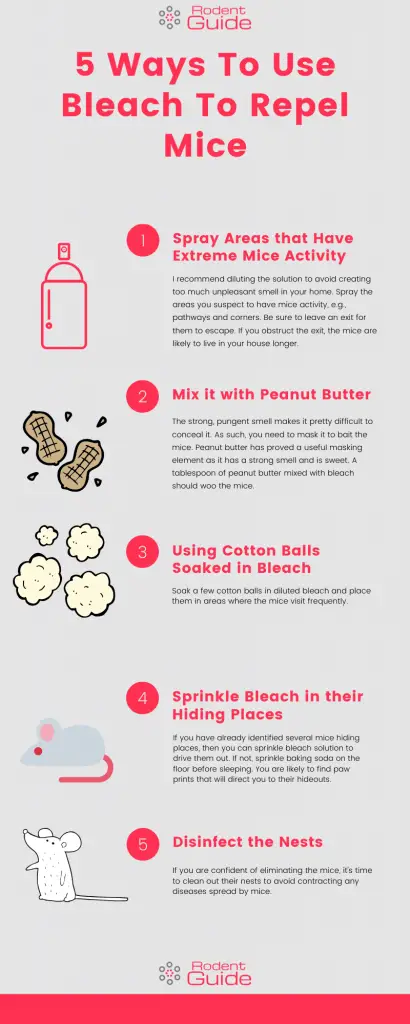
1. Spray Areas that Have Extreme Mice Activity
I recommend diluting the solution to avoid creating too much unpleasant smell in your home. Spray the areas you suspect to have mice activity, e.g.:
- Pathways
- Corners
- Entry points
- Mouse runs
Be sure to leave an exit for them to escape. If you obstruct the exit, the mice will likely live in your house longer.
The bleach not only repels the mice, but it also destroys disease-causing bacteria and viruses on the surfaces.
The idea is to ensure the mice inhale enough bleach fumes to kill them. When inhaled, the bleach breaks down the cells in the soft tissues causing bleeding and reduced oxygen intake.
It has to be a lot, though!
One lungful of bleach is not enough to kill a mouse. Using bleach for mice control is something you can do, but trying to get a mouse to breathe in enough fumes will be difficult unless you trap it first. Killing mice with bleach by inhalation is a challenge, but not impossible!
2. Mix it with Peanut Butter
The strong, pungent smell makes it pretty difficult to conceal it. As such, you need to mask it to bait the mice. Peanut butter has proved a useful masking element as it has a strong smell and is sweet. A tablespoon of peanut butter mixed with bleach should attract a mouse.
Ensure the peanut butter masks the pungent bleach smell completely. If you can still smell bleach, there’s probably too much of it in the mixture. You can also mix the bleach with powdered peanut butter as long as it does not become too runny after adding bleach.
Once bleach comes into contact with the rodent’s stomach, it causes epithelial cells to break down just as burns occur. What’s more, if the bleach continues to eat away, the cells, fats, and inner tissues are broken down as well.
The mice should ingest enough peanut butter to kill it. Unfortunately, its death is not immediate and may take 24-48 hours. This is not a humane way of killing a mouse, and while it is not something I recommend, it works as part of a mouse control process.
3. Using Cotton Balls Soaked in Bleach
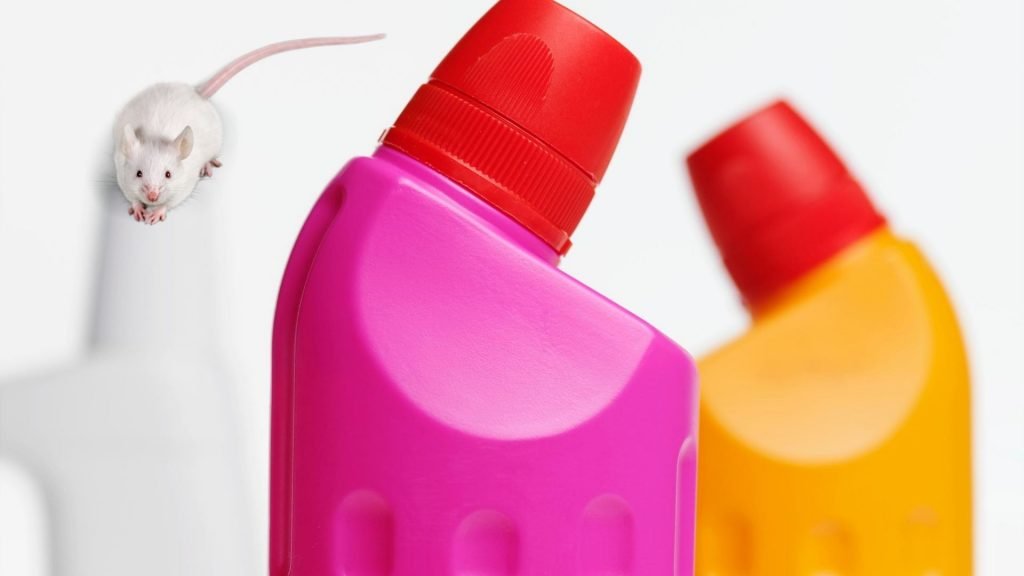
Soak a few cotton balls in diluted bleach and place them frequently in areas where the mice visit.
Mice are quick to detect a change in odor, and using cotton balls soaked in bleach will effectively drive them away.
Additionally, you can use these soaked cotton balls to distort their trails by placing them along their usual path. This will slow them down, increasing your chances of catching and disposing of them.
4. Sprinkle bleach in their Hiding Places
If you have identified several mice hiding places, you can sprinkle bleach solutions to drive them out. If not, sprinkle baking soda on the floor before sleeping. You will likely find paw prints that will direct you to their hideouts. The foul-smelling bleach will compel them to leave the hideout in search of a hideout that has fresh air.
Alternatively, you can find, seal and sprinkle bleach in the mice entry points to avoid more mice from entering your home. Inspect the cabinets, closet doors, and the outdoors to identify all the entry points.
Mice get through holes as small as a quarter-inch; hence ensuring the holes are completely sealed will stop further infestations.
After sealing these entry points, you can go ahead and sprinkle bleach solution to effectively repel them.
5. Disinfect the Nests

If you are confident about eliminating the mice, it’s time to clean out their nests to avoid contracting any diseases.
Avoid vacuuming or sweeping the area as it may cause disease-causing bacteria to spread in the air, causing you and your loved ones to inhale contaminated air.
Also, wear protective gear such as latex, rubber, or vinyl gloves. Then, spray the nest with a bleach solution and allow it to soak for five minutes.
Bleach and mice do not mix, and neither do bleach and humans if there is too much of it!
The recommended ratio of bleach to water is 1:10 to disinfect the nests.
Use a paper towel to collect the dropping and dispose of the waste in a garbage bag.
Make sure to clean up the mouse urine too!
Once the rodent droppings are removed, disinfect the items. Also, clean the countertops and mop the floors using the bleach solution.
It would help if you also ventilated the area for an hour by opening the doors and windows. If you have an electric fan, it would be helpful to switch it on to drive the smell of bleach away.
What cleaning products do mice hate?
Some of the cleaning products that mice hate include bleach, vinegar, and lavender oil. These strong smells can help deter mice from entering an area.
You can also use mouse-repellent products that are available at most hardware stores.
What smell makes mice go away?
There are a variety of smells that are known to repel mice. Some people believe that the smell of bleach is enough to keep these pests away. Other scents that deter mice include peppermint, cayenne pepper, and vinegar. You can experiment with different smells to see what works best for you.
At the very least, you can use bleach or vinegar to clean up after a mouse infestation!
Conclusion
Does bleach repel mice? Yes, it does (I have seen it work successfully). Does bleach kill mice? Yes, it can, but the chances of killing a mouse with bleach are meager unless you can get it to ingest or breathe enough of it in.
As such, you need to be proactive at eliminating things that attract the mice to your house.
You can eliminate potential food sources, clean up food debris on countertops and floors, and store leftovers in glass containers with lids. Also, removing climbing sources like trees and vines should help keep mice away. Overgrown vegetation, piles of firewood, long grass, and debris also make potential breeding and hiding areas for mice.
Sealing mouse entry points is the best way to avoid getting mice into your home.
Ultimately, using bleach for mice control is something that you should consider, but it cannot be the only thing you use.
Good luck!

